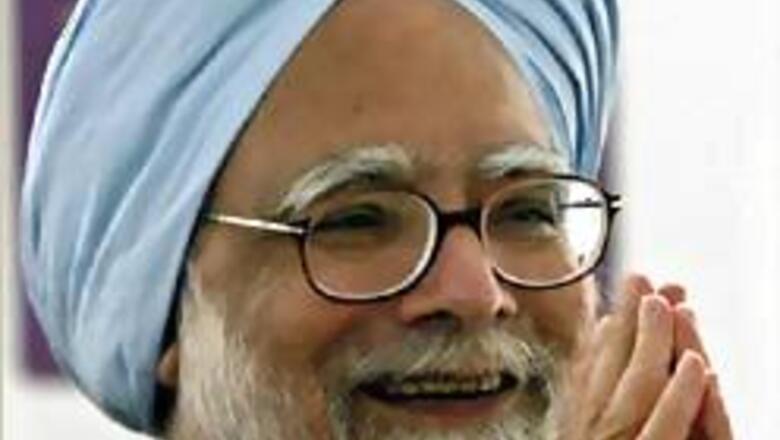
views
New Delhi: India and South Africa, two of the world's leading emerging markets, hope to boost business links as Prime Minister Manmohan Singh visits the African nation this week to build on their historic ties.
The two major developing nations would push efforts to boost investments in telecommunications, information technology, infrastructure, hospitality, textiles and pharmaceuticals during the four-day visit starting Saturday, Indian officials said.
The two sides are also likely to explore opportunities for civilian nuclear energy cooperation that could help New Delhi source uranium to power its atomic plants. Besides, Singh will retrace the steps of Mahatma Gandhi, who first made his mark in the African nation, as it celebrates the centenary of his launch of Satyagraha or passive resistance against apartheid and colonial rule.
"The visit is aimed at strengthening these ties and taking them to a higher level than this," Shashi Tripathi, an Indian foreign ministry official, said ahead of the trip. Bilateral trade touched $4 billion during 2005/06 and both countries say they want to treble it by 2010.
"This is only a fraction of the potential ... given the kind of resources South Africa has and given the strengths India has," Tripathi said, referring to current trade levels.
Singh is due to hold talks with South African President Thabo Mbeki, less than three weeks after the two leaders met along with Brazil's President Luiz Inacio Lula da Silva in Brasilia as part of a three-nation forum formed to boost South-South cooperation.
The India-Brazil-South Africa summit agreed to cooperate on energy and transportation and boost trade to $10 billion per year as part of a deepening alliance between three of the world's leading emerging markets.
South Africa and Brazil also supported India's plans to expand its civilian nuclear energy programme as New Delhi - which has not signed the Non-Proliferation Treaty (NPT) - awaits the approval of a landmark atomic deal with the United States.
India, which produces just over 0.5 per cent of global uranium output, is looking at countries such as Australia and South Africa which are rich in the mineral to meet its needs.
South Africa is estimated to account for about 10 percent of global uranium reserves, one Indian official said.
South Africa's envoy to India said earlier this week that his country was ready to pursue nuclear cooperation with New Delhi and indicated support for India's case to access atomic supplies.
"Our view is that all countries have the right to use nuclear energy for peaceful purposes," ambassador Francis Moloi said.
"We can't change the rules of NPT for the world but between friends, you can be sure that issues will be looked at like friends," he said.














Comments
0 comment